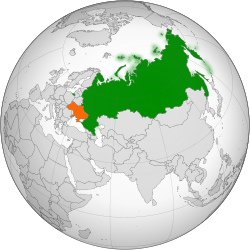On February 26, the Cuban government issued a declaration on the situation in Ukraine. The “Declaration of the Revolutionary Government” was transmitted on the Website of the Cuban Ministry of Foreign Relations, and it was published in its entirely in Granma, which is the principal daily newspaper in Cuba and the Official Organ of the Communist Party of Cuba.
The Declaration begins with the observation that the U.S. insistence on continuing the progressive expansion of NATO toward the borders of the Russian Federation has brought about a scenario, with unpredictable implications, that could have been avoided. “It is not possible to examine with rigor and honesty the present situation in Ukraine,” it continues, “without assessing at length the just complaints of the Russian Federation to the United States and NATO.” It notes that the United States and NATO, as is well known, have been carrying out military movements in regions adjacent to the Russian Federation, and they hav…


